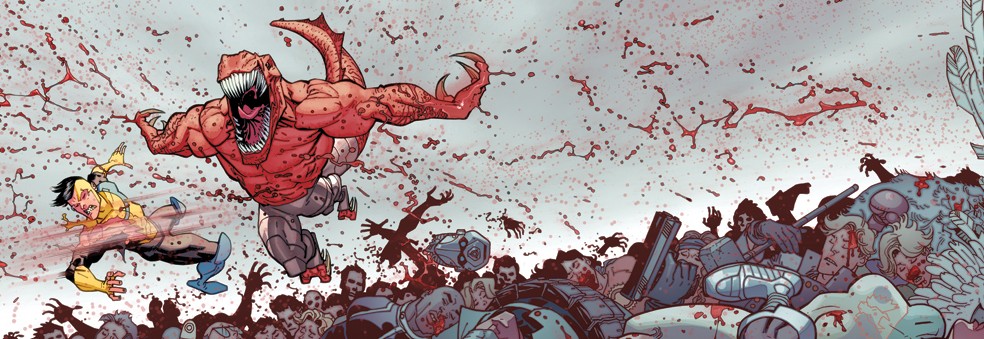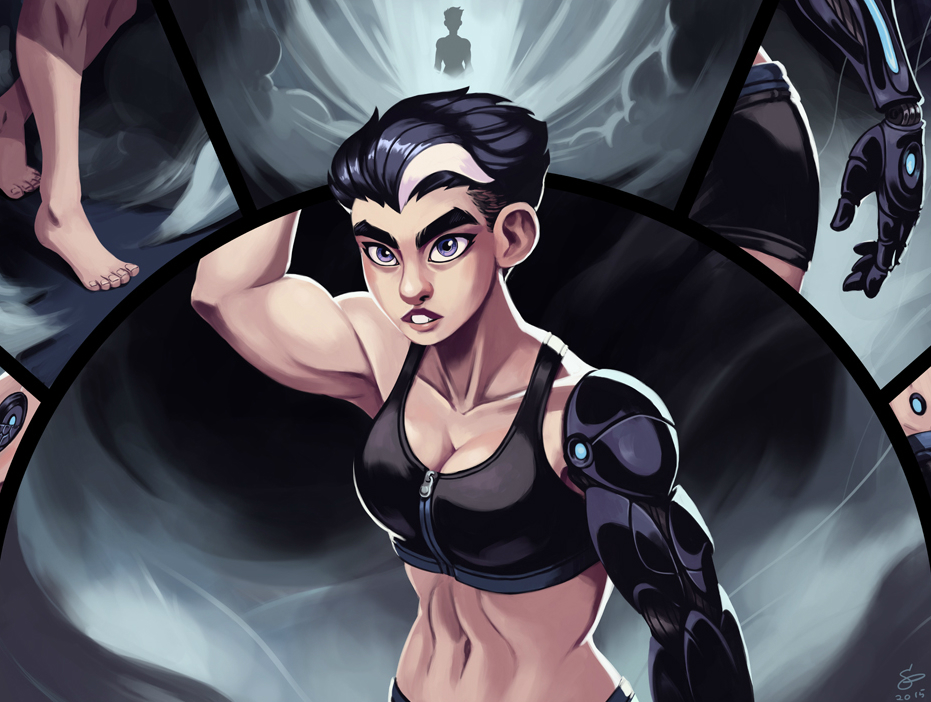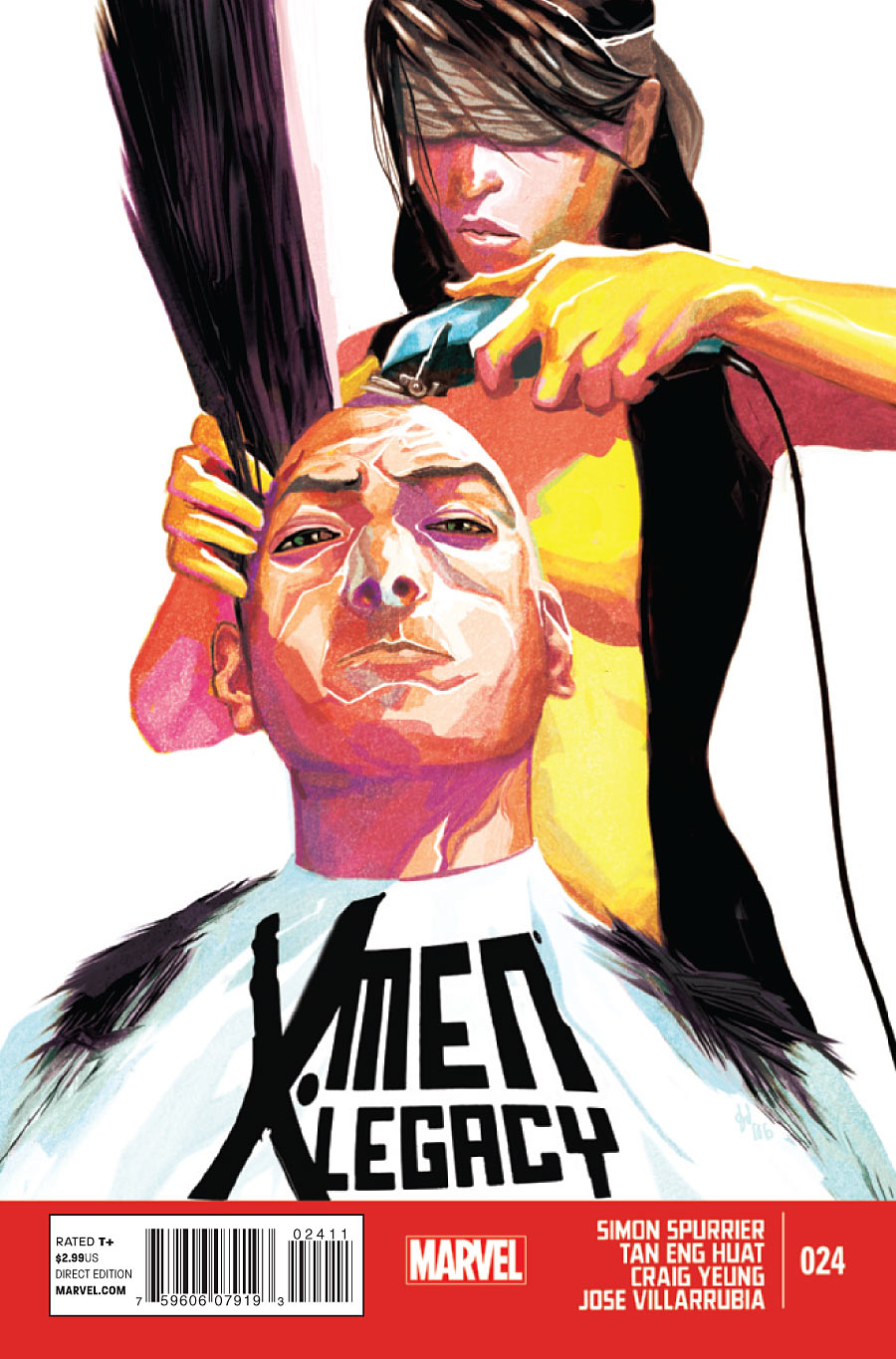Not Entirely Spoiler-Free Commentary by Jason Kahler
Secret Empire #1, the story of the world under the thumb of Hydra agent Captain America, is really nicely written. The art is great. The dialogue is snappy. The action is well-paced.
The story has emotional heft without veering into sentimentality.
And I hate it.
I hate the “Secret Empire” story for for everything it is beyond the comic page.
I’m not aiming to add to the crowded outrage echo chamber. There is already plenty of conversation going on about Nazis and facists and where Hydra falls into that continuum. Instead, I’d like to think about history, marketing, and heroes.
I’m old enough to remember when John Walker replaced Steve Rogers as Captain America in the late 1980s. It wasn’t the first time someone other than Steve Rogers had been Captain America, though it was the first one I had read about that wasn’t a history lesson or an alternative dimension. Walker was introduced as the Super-Patriot in Captain America #323 as a self-aggrandizing lug who looked to outshine and replace Rogers. It took nearly thirty issues to slide Walker into the Cap role, and along the way Walker did some pretty terrible things and experienced a psychological snap.
 John Walker as Captain America in Captain America #346
John Walker as Captain America in Captain America #346
Steve Rogers has never had a monopoly on the role of Captain America (wikipedia lists eleven characters in the 616-Universe alone).
My favorite replacement Cap, the Spirit of 76
Marvel has also never shied away from having the person holding the mantle of Captain America be decidedly “un-American” (one replacement Cap became the Grand Director and led a group of white supremacists).
A History Of Abuse
I find myself thinking that maybe the “Secret Empire” story is just another in a long line of “Messin’ With Cap” stories that began with freezing him in the ocean.
Despite the crazy history of the character, this is the first time Marvel has attacked Steve Rogers on a foundational level. Before Rogers was Captain America, he was Steve Rogers. Most of us have probably seen that scene from Captain America: The First Avenger where Rogers—pre-Super Soldier Formula—dives onto a fake grenade thinking it’s real as the rest of his squad mates cower in fear or save themselves.
That’s Steve Rogers. Selfless. Determined to do what’s right under the most difficult circumstances. The embodiment of what most Americans hope the United States can be in the best of times.
The best example of Captain America’s moral compass is this great speech from Amazing Spider-Man #537 that really captures who Steve Rogers is:
Doesn’t matter what the press says. Doesn’t matter what the politicians or the mobs say. Doesn’t matter if the whole country decides that something wrong is something right. This nation was founded on one principle above all else: the requirement that we stand up for what we believe, no matter the odds or the consequences. When the mob and the press and the whole world tell you to move, your job is to plant yourself like a tree beside the river of truth, and tell the whole world — “No, you move.”

Cap tells it like it is in Amazing Spider-Man #537
That isn’t the kind of person who orders executions and the destruction of a city’s populace.
It’s Hard to Run an Evil Empire
If you’ve read Secret Empire #1 you’ll see glimmers of the Steve Rogers we know and respect peek through. He shows honor in his dealings with Krigorrath and affection during his dinner with Sharon. An odd moment in the Free Comic Book Day issue hints that something else is afoot. The truly terrible things that happen during the issue aren’t directly by his hand. Rogers is the Administrator of Evil. He orders the attacks of underground revolutionaries with the same passion he uses for attacking paperwork.
That’s not enough, though, to cross the gap between the real Steve Rogers and “Secret Empire” Steve Rogers. Rogers’s actions cause ruination, even if his hand is never directly involved.
Representatives from Marvel have asked fans to allow the story to run its course. They’ve said Rogers will return to being a hero once again. Steve Rogers’s Captain America will be a good guy, and he’ll stop being a Hydra agent, because you simply can’t put a character who may or may not be sorta’ a Nazi on the poster for an action movie that’s expected to gross over a billion dollars.
There’s No Turning Back (Unless You Have a Cosmic Cube)

Let’s hope.
After the events of Secret Empire #1, the only way that can possibly happen is if a reality-altering device of some sort wipes things away and all that we’ve lost is given back. Steve Rogers cannot possibly be himself again, otherwise.
All the sturm and drang of “Secret Empire” will have been for nothing. Characters will not grow because they will be reset at the end of this event, and without character growth, no matter how well-written this story may be, the whole practice will ring hollow. In a fictional universe where cosmic cubes with the power to warp reality and become badly-drawn little girls exist, nothing is permanent. People live. People die. People un-die. “Secret Empire” can, and will, be undone and nobody will be surprised.
“Secret Empire” is not a good story because it can’t end with it mattering one bit. Please prove me wrong, but Rogers can’t be himself again with the knowledge of what he’s ordered in this issue. Eventually, it will be undone. (Looking at you, Kubik.)
The industry has survived big changes to big characters before. “Secret Empire” is noteworthy because instead of making bodily changes (like to Batman’s back) or mortality changes (like to Superman’s life) or life choices changes (“Spider-Man No More!”), this story attacks Steve Rogers’s foundational morality. Rogers has never been written ambiguously (unlike, for example, Magneto or Emma Frost), and this change, without any natural development, feels cheap. That’s why “Secret Empire” will go away someday.
All of this energy–on the part of creators, fans, and critics–will be for nothing.
Caretakers of Popular Mythology
We don’t need to tie the hands of comic book creators and their visions, but can’t we just agree on some universal truths? Bacon is good. Han shot first. Batman’s parents are dead. Steve Rogers is not and has never been kinda’ sorta’ a Nazi.
There is plenty of moral ambiguity in comic books beyond justifying extra-judicial private citizens putting on spandex and beating people up without the benefit of a trial. That doesn’t even begin to consider characters like Deadpool, Lobo, the Punisher, and others whose main conceits are anti-heroic. Steve Rogers was, and should have remained, the character we could trust to make the hard decisions.
He’d rather not be Captain America than disgrace what “Captain America” means.
Cap, Batman, Spidey, Supes, Wonder Woman: these characters are part of our shared popular psyche. They’ve become our mythology, but they are also living continued lives thanks to comic book publishing. Alan Quartermain exists in that place between fiction and history, so we don’t complain if he’s misused in a film. Captain America enters our homes at least monthly, a myth with which we interact while eating TV dinners.
In the History Channel’s documentary Comic Book Superheroes Unmasked, legendary Batman writer and editor Denny O’Neil recounts his experience guiding Batman through the “Death in the Family” story. He realizes he wasn’t just writing and editing fiction, but serving as the caretaker to popular culture icons.
Today’s creators should remember that. There is room enough for good, fresh stories without destroying characters, their history, and what they mean off the page.
Captain America will be fine. Captain America will be fine. Even John Walker turned out all right. We’ll get through this and so will he. “Secret Empire” is a bad story told well. Imagine what we could be reading right now if all this energy and talent were directed elsewhere.












